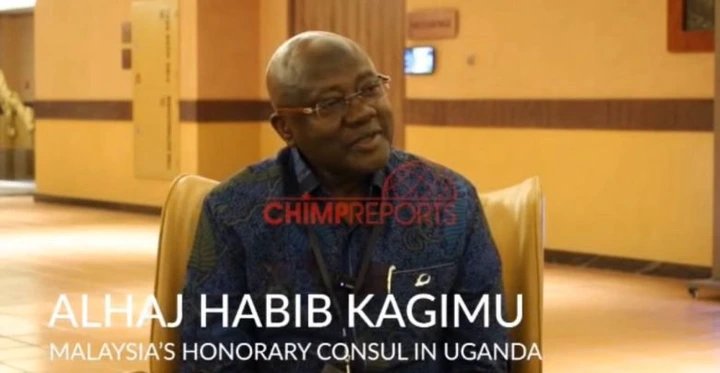Habib Kagimu to Entrepreneurs: Prepare for Uganda’s Oil Boom

Oil companies are like a nation — they need everything from everything. If you can set up shop near them, they will buy everything from you,” Kagimu explained
KAMPALA, Uganda — Malaysia’s Honorary Consul in Uganda, AlHaj Habib Kagimu, has urged local entrepreneurs to strategically position themselves to benefit from Uganda’s nascent oil and gas sector, saying the industry will trigger massive economic transformation and create supply-chain opportunities for Ugandan businesses.
Speaking in an interview with ChimpReports, Kagimu, a wealthy oil trader with deep links to the Arab world, said Uganda’s forthcoming oil production represents a “game-changer” for the national economy.
“Oil is a huge business. Ugandans may not even know what has hit them until they see what oil will do to Uganda,” he said.
“Our economy and everything will change because of the oil we have found.”
Uganda is expected to commence commercial oil production in 2025, nearly two decades after the discovery of reserves in the Albertine Graben.
The Tilenga and Kingfisher projects, led by France’s TotalEnergies and China’s CNOOC, are expected to yield up to 190,000 barrels per day once fully operational.
Kagimu dismissed fears that Uganda could suffer the so-called “oil curse,” arguing that the real challenge is in ensuring local participation.
“There is no wealth that can be a curse. I would rather have the oil curse of Nigeria than the poverty curse which we suffer from,” he said.
Header advertisement
He urged Ugandans to focus on building service-oriented enterprises capable of supplying the industry.
“Oil companies are like a nation — they need everything from everything. If you can set up shop near them, they will buy everything from you,” Kagimu explained.
Industrial Park
He cited the Kabalega Industrial Park in Hoima District as a key hub for local manufacturing and service provision linked to the oil value chain.
“The government is establishing Kabalega Industrial Park, where many factories and supply firms will support the oil industry,” he said.
Kagimu noted that foreign oil service companies from Europe, North America and Australia are already forming partnerships with Ugandan firms — arrangements that will gradually transfer technology, skills, and capital.
“Welding for an oil pipeline is not the same as welding the exhaust pipe of your car,” he remarked. “It’s very sophisticated and requires special training, which Ugandans are now acquiring.”
He added that Uganda’s youthful and educated population gives the country a competitive advantage in capturing oil-related opportunities. “Ugandans are very well educated people,” he said.
“If our entrepreneurs learn how to work with banks, behave professionally, and build credible companies, they will gain immensely from the oil industry.”
Officials say the government’s National Local Content Policy and initiatives by the Petroleum Authority of Uganda are aligning with such calls by ensuring Ugandan companies participate in procurement, fabrication, logistics, and hospitality services within the petroleum sector, a value chain projected to attract more than $15 billion in investment over the next decade.



0 Comments